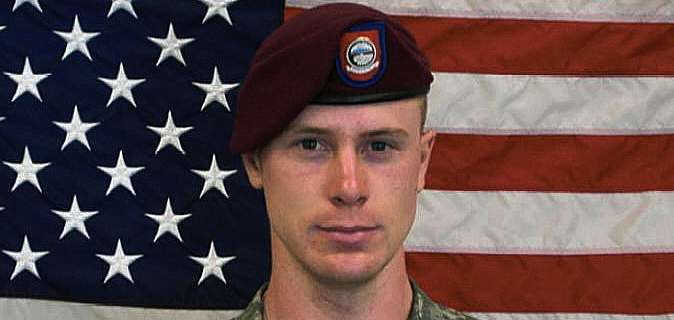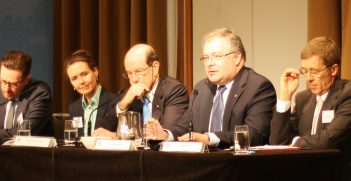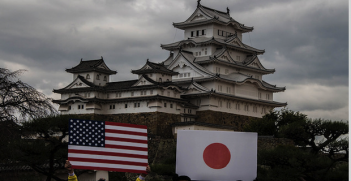Sgt Bowe Bergdahl: A Good News Story Unravels

Barack Obama would have done better simply saying that sometimes a president must rise above principles to do dirty deals that save a soldier’s life.
It’s hard not to feel sorry for the beleaguered US president. What should have been a celebratory welcome home for a war hero, complete with a family photo-opportunity, has rapidly turned into a PR nightmare that threatens to validate the negative narrative of a president who deals with foreign bad guys and brushes aside the law with cavalier contempt. In hindsight Barack Obama would have done better simply saying that sometimes a president must rise above principles to do dirty deals that save a soldier’s life.
On 31 May, after five years in Taliban captivity, 28-year old US Army Sergeant Bowe Bergdahl was freed in exchange for the five highest-ranking members of the Afghan Taliban from Guantanamo Bay released into the custody of Qatar.
The Seven Issues
There are seven intertwined issues in this case study of multi-layered complexity, nuance and ambiguity.
First the US has a commendable commitment to the policy of “no soldier left behind.” Five years is a long time to be a prisoner. With the US combat mission drawing to a close, when a window of opportunity opened, Obama moved decisively to secure Bergdahl’s release.
Second, however, the exact circumstances of Berghdal’s capture are murky and need to be investigated. In an unfortunate reprise of her performance on the terrorist attack on the US compound in Benghazi on 12 September 2012 that killed Ambassador Chris Stevens, National Security Adviser Susan Rice hit the Sunday talk show again to claim that Bergdahl had served his country “with honor and distinction.”
Ouch! Bergdahl was disillusioned with the US military mission when he disappeared. An entire US army division plus Afghan security forces searched for him for weeks during which six lives were reportedly lost. According to angry fellow-soldiers from his former unit, at best Bergdahl was a deserter, at worst a traitor who should be prosecuted. General Martin Dempsey, chairman of the joint chiefs of staff, has said the army will conduct a fresh review.
Third, did Obama violate the US policy of not negotiating with terrorists? This gives added incentive to take US soldiers, diplomats and citizens hostage as bargaining chips for all manner of demands by enemy forces and terrorists. In addition the release of five top Taliban could see them return to active duty in due course. Afghan Taliban leader Mullah Mohammad Omar has hailed this as a “big victory” and the Taliban have posted a triumphalist video of the handover ceremony. Critics and Republicans accuse the president of having endangered American lives. The White House insists that the deal with Qatar, which requires the five to be closely monitored and not leave Qatar for at least a year, will “sufficiently mitigate” risks to US national security.
Fourth, Obama is accused of contravening the law that requires the White House to notify Congress 30 days in advance of any transfers of Guantanamo prisoners. The administration’s explanations of the urgency of the circumstances have failed to mollify members of Congress and calls are growing for hearings into the prisoner exchange. Defense Secretary Chuck Hagel has been invited to testify on the swap deal at a House Armed Services Committee hearing on 11 June.
Fifth, Washington failed to factor in potential regional repercussions. Kabul has criticised the deal as a violation of international law because five of its citizens were handed over to a third country as prisoners. A year from now, if the Taliban five return to Afghanistan emptied of US combat troops, the full impact of their return to active duty would be felt in Afghanistan, Pakistan and India.
Sixth, Obama may have found a way around the impasse over the Guantanamo Bay detention facility. A legal black hole, Guantanamo has become the symbol of how the US has grievously contravened due process, international law, international humanitarian law and international human rights law in its misguided war on terror. Failure to close it is not merely a broken promise by Obama, it will also be a blot on his legacy. Once the war in Afghanistan is over, it would seem even more unconscionable for prisoners captured in that war still to be held in Guantanamo. If Obama can exercise his authority to swap five high-value Taliban prisoners for one US soldier, what is to stop him from using his pen to retrieve some lost American honour and compromised justice by releasing many more lower-risk Guantanamo detainees?
Finally, the episode proves that the Taliban’s Qatar office is well plugged into its military command structure back in Afghanistan and that they can negotiate, sign and deliver on a deal. This could prove handy in the months and years to come.
Ramesh Thakur is professor in the Crawford School of Public Policy, Australian National University and co-editor of The Oxford Handbook of Modern Diplomacy.
This article will also be published in The Japan Times.





